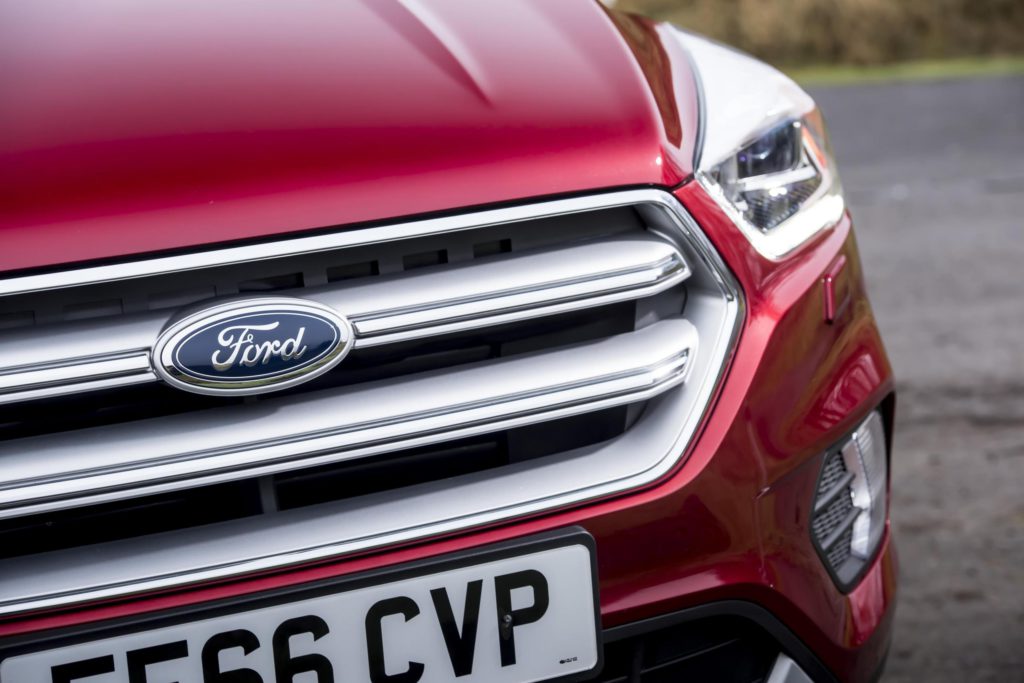Ford and VW will benefit most from their collaboration efforts
21 June 2019

21 June 2019
Ford and Volkswagen Group (VW) have the most to gain from any potential or existing partnership than any other carmaker pairing, following the announcement earlier this year over collaboration in the commercial vehicle sector and possible tie-ups with electric and autonomous vehicles.
This is according to the result of the latest Autovista Group poll, where just under half (47%) of respondents felt that the US and German companies would benefit from each other’s advances in technologies while sharing the financial burden. With its autonomous technology startup Argo AI, Ford is more advanced in this field than most. However, it lacks in electric vehicle (EV) development – an area where VW is excelling thanks to its MEB platform and recent vehicle launches.
Rumours suggest that the two companies will announce a partnership in these two areas next month, with VW already investing in Argo AI. The German carmaker has ended an agreement with driverless software business Aurora, adding fuel to these rumours. The carmakers would then be able to launch themselves in these fields, while also boosting their commercial vehicle arms through the existing partnership.
The Renault-Nissan Alliance took a distant second in the Autovista poll with 17%. The existing collaboration has been through a rocky patch recently following the scandal surrounding Carlos Ghosn. However, each company benefits from the other, with access to foreign markets and technology. This is evident from the recent signing of a partnership with Waymo, allowing the exploration of mobility services in both France and Japan.
Additionally, Nissan will soon share its EV platform with Renault. Both companies were early adopters of the technology, with their Leaf and ZOE models respectively. Sharing the Leaf platform will give Renault a financial boost, although the company did recently announce an upgrade to the ZOE, suggesting a second-generation version is not due for a while.
In a close third was the partnership between Jaguar Land Rover (JLR) and BMW. Both companies will come together to develop EV drive units, a partnership that will benefit the advancement of the technology throughout their respective ranges. BMW has been involved in the EV market from an early stage with its i3 and i8 models, while JLR launched its renowned I-PACE last year.
The agreement will enable both companies to take advantage of efficiencies arising from shared research and development and production planning as well as economies of scale from joint procurement across the supply chain.
Despite the hype surrounding the potential merger between Fiat Chrysler Automobiles (FCA) and Renault, only 10% of respondents chose this option. Under this proposal, which is officially off the table but could be revived under certain conditions, FCA would benefit from Renault’s experience in electric technology and mobility services, while Renault would have better access to different markets, notably the US. Both companies would also be able to pool finances and share development costs when it comes to connected and autonomous vehicles. Renault would also have access to luxury vehicle brand Maserati, having struggled with its Nissan-backed Infiniti brand.
The collaboration between BMW and Daimler only garnered 7% of the votes. Announced early last year, the two former rivals are working together on their mobility services, while also discussing sharing research on autonomous vehicles. With carsharing expected to be a growing market as vehicle ownership priorities change, both companies believe that working together and pooling their former services into five new offerings, will futureproof their businesses.
Finally, with 4% of responses was the agreement between Toyota and Suzuki. The collaboration will see Toyota supply its hybrid system to Suzuki, while the smaller Japanese manufacturer will also use Toyota platforms to build two new electrified vehicles. Suzuki will share its compact platform, allowing the larger business to build two small cars for the Indian market. Toyota’s partnership with Subaru did not gain any votes.
As costs rise and development pressures increase, it is likely the collaborations mentioned here will not be the last. It will be interesting to track the development of all collaborations as the automotive market enters a brave new world.